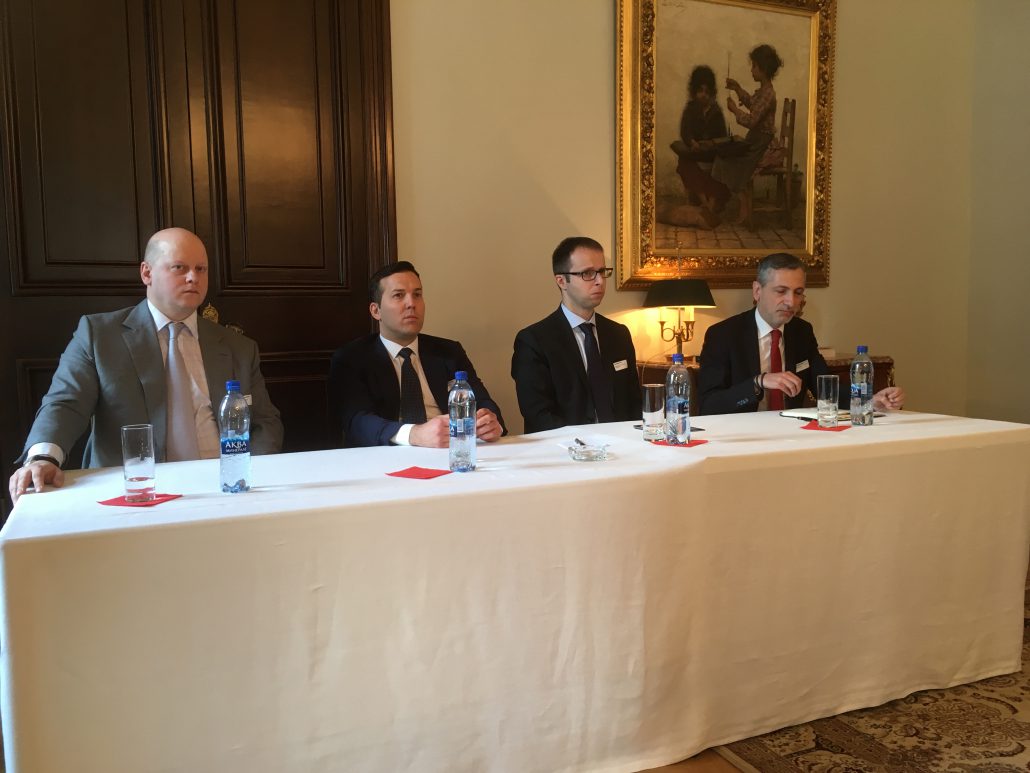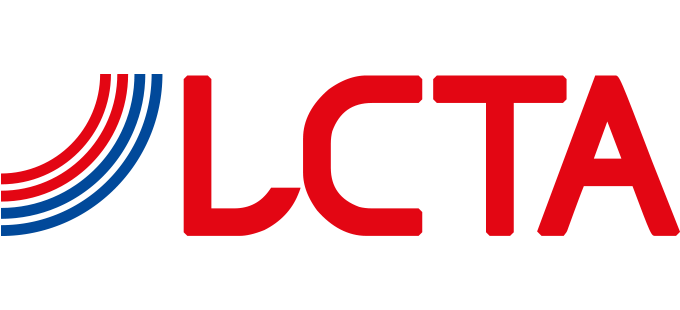Actual and future trends in the european natural gas market
The LCTA actively continues the work on the Russian market and for the fourth time organized a round table in Moscow, with the precious support of the Embassy of Switzerland.
The event “ACTUAL AND FUTURE TRENDS IN THE EUROPEAN NATURAL GAS MARKET” took place on Friday, March 17, at the Swiss Residence and has been opened by an interesting speech of the new Swiss Ambassador in Russia, Mr. Yves Rossier.
Marco Passalia, General Secretary of the LCTA, took the floor and presented the first and special guest of the event: Valeriya Leshchenko, Managing Director of UMP Trading SA, founded in Ticino in 2008. UMP Trading SA is the representative in Switzerland of EMSS – one of the largest Ukrainian manufacturer of special castings and forgings, with a particular focus on the energy, oil-and-gas and metallurgical industries. Mrs. Leshchenko was asked to bring her personal experience on the topic “The Swiss way of doing business”. Mrs. Leshchenko highlighted the advantages of establishing a business in Switzerland, such as the clear and transparent legal system, the political, economic and financial stability, and the strategical position in Europe.
Round Table

From left:
Christopher Harding, Managing Director, Mercuria
Matija Barudzija, Co-Founder, ENET Energy SA
Marco Passalia, General Secretary, LCTA
Nicola Moschillo, CEO, EstraEnergie
Then, it took place the round table, excellently moderated by Marco Passalia. Three special guests were asked to discuss on the trends in the European gas market: Matija Barudzija, Co-Founder, Enet Energy SA, Christopher Harding, Managing Director, Mercuria Energy Trading Ltd and Nicola Moschillo, CEO, EstraEnergie.
The panel focused the attention on the three different kinds of activities covered by the companies represented by the panelists.
The opening discussion highlighted the different success factor of each company. For instance, the company Mercuria has grown from a small trading company in a global player in a very short period of time. Other interesting example is EstraEnergie that today represents one of the strongest vertically integrated energy and municipal services groups in Italy and probably in Europe. Last important company isEnet Energy that, as a Swiss independent wholesale gas trading company, fits pretty well between global players, on the one side, and big consumers, on the other side.
Then, the discussion has been shifted to the perception and idea of the business in the future. In particular, it was raised the question if the future framework will give more room to the role of trading house or of investment bank.
The second part of the conference focused the attention on the European gas market. In the last 10 years, EU gas markets have moved from a very fragmented, closed structure to a liquid, legally safe trading place. Prices have seen ups and downs, but lately we see a downward trend. The following questions were essential for the discussion: how do you see the development of these markets? Long-term supply contracts are still interesting or you are a fair believer of spot markets? Are we 100% sure, there will be plenty of gas always available?
About the evolution of the EU natural gas market is clear that with new sources of supply on the market, you need a lot of investment and long term placement at certain price levels – if everybody continues to link their contracts to the markets, sooner or later, the excess supply will bring prices down to non-economic levels. The future evolution is easily predictable, the demand in Europe is weak and renewables and energy efficiency – heavily subsidized – are somehow defining the trend. Talking about the competition forces in the EU gas market, it is clear that these are impacting the retail and downstream segments and the margins have been squeezed, especially for the incumbents and “old” companies which have high long term costs. In conclusion one of the key-questions was about the role played by suppliers: given the new promised alternative sources of supply like LNG and new pipelines, will suppliers need to do more than simply linking their contracts to a liquid EU hub and offer discounts to natural long term buyers like?
The audience appreciated the topic and the discussion very much and the contacts were very fruitful and positive. The event proved once more the relevance of the work of the LCTA in Russia. The LCTA will continue in the future to create these excellent opportunities for thematic analysis and networking, abroad and in Ticino.


